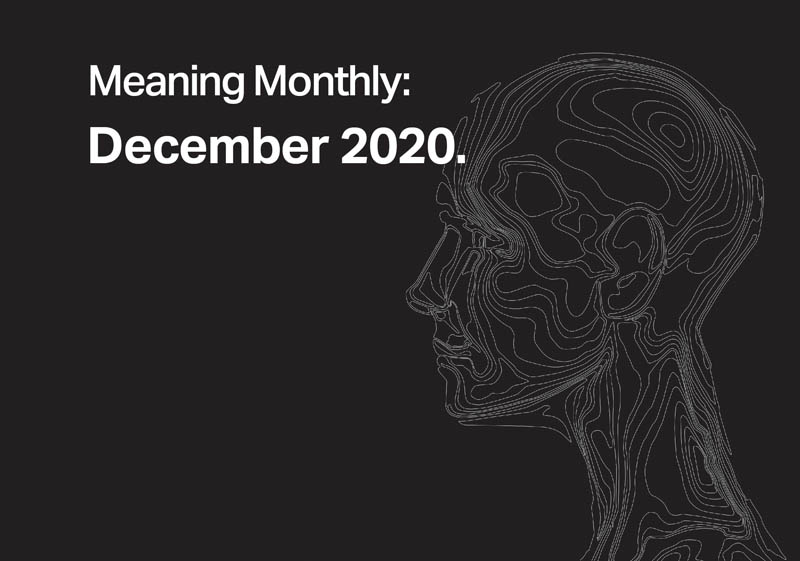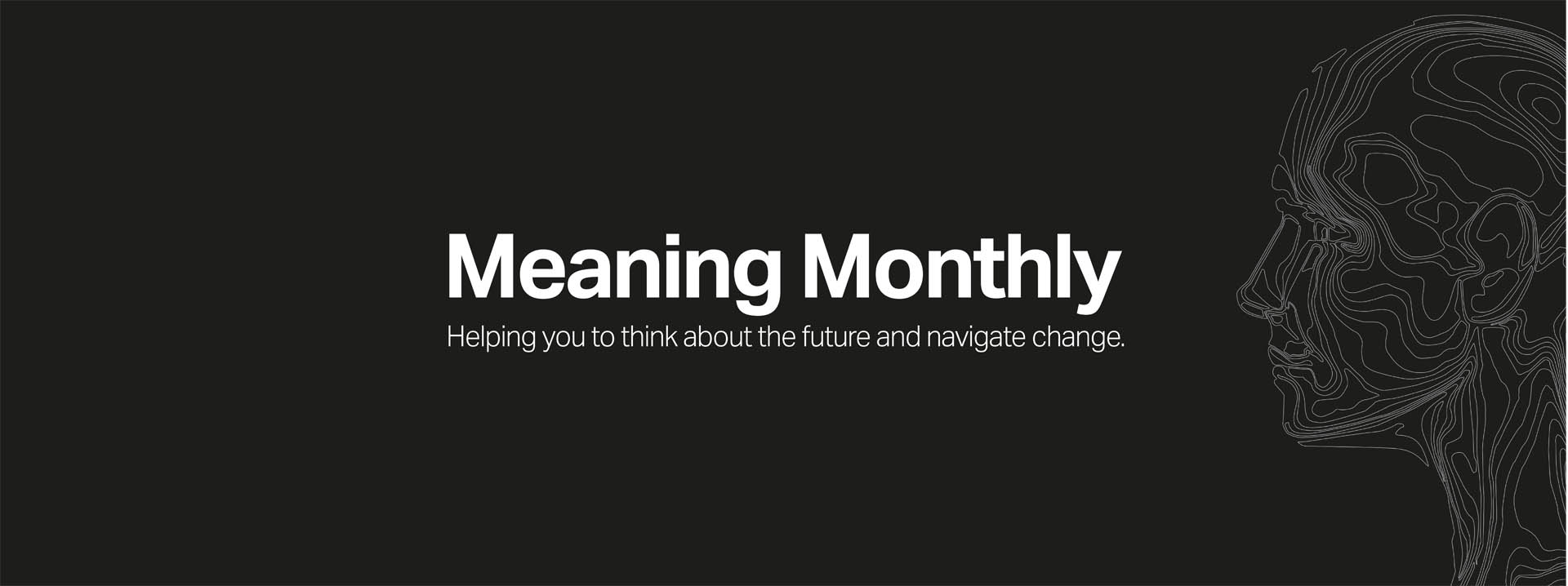
February 2021
Here at Recipe, we began 2021 by attending CES, the world’s largest exhibition of consumer technology. This year, the event was set to look very different, as COVID-19 forced it to move online. Despite this, we were excited to observe many emerging trends that signified changing meanings within home environments, giving us a preview into the home of the future.
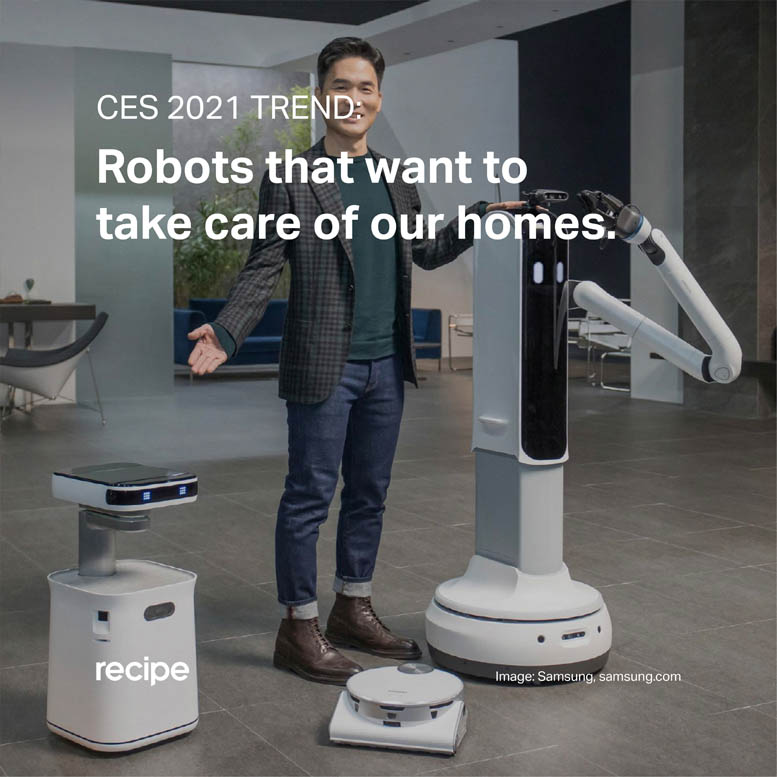
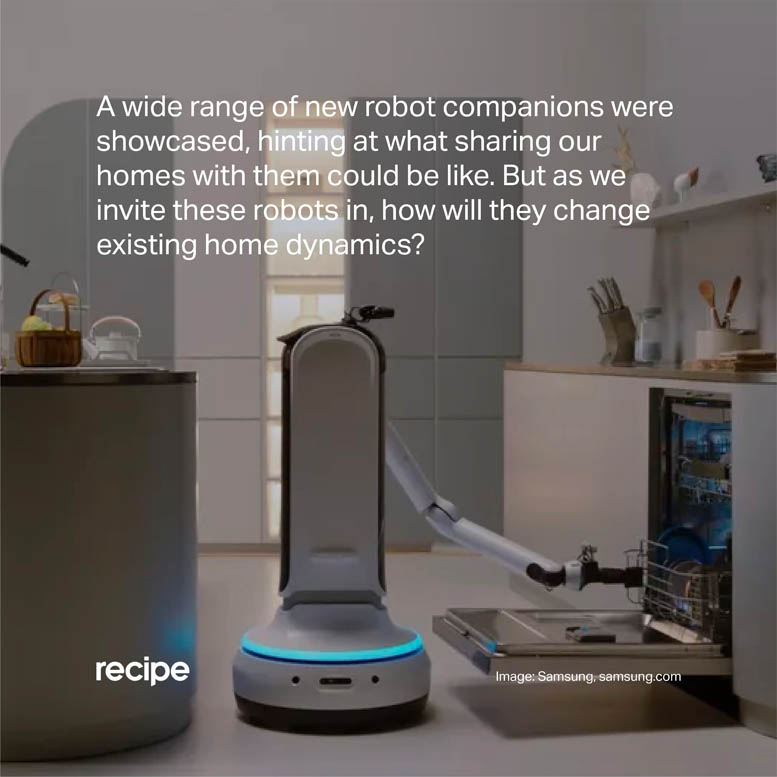
Although still in development, a wide range of new robot companions were showcased, hinting at what sharing our homes with them could be like. Mostly aimed to assist with household activities such as cooking, cleaning or even pouring drinks, the presence of these robots in our homes is likely to become increasingly normalised.⠀
But as we invite these robots in, how will they change existing home dynamics? In giving them our chores, are we truly improving our lives, or will we lose crucial elements of the human experience of home?
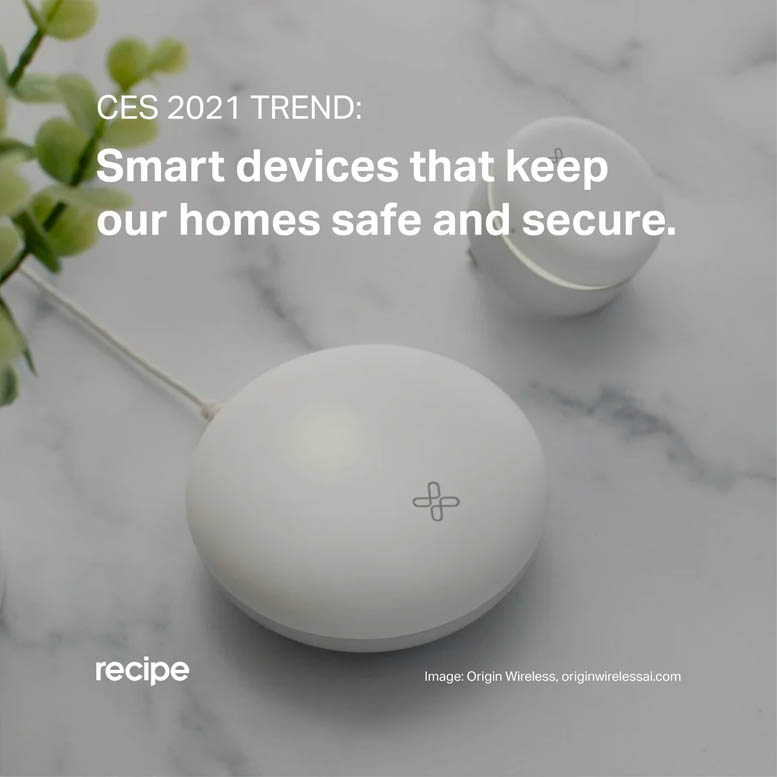
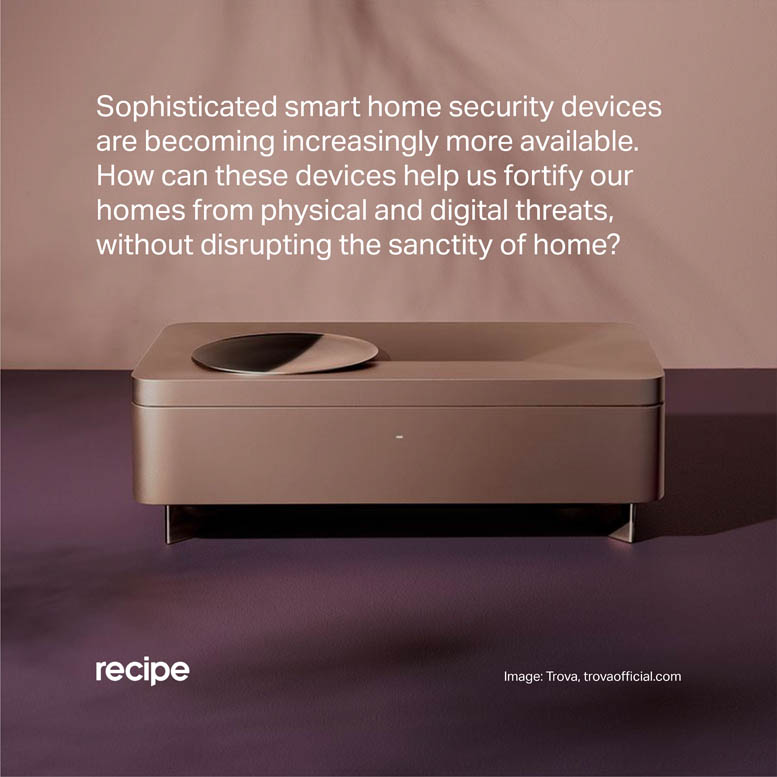
As the smart home category expands, increasingly more sophisticated and diverse home security devices are becoming available. At CES we spotted Hex Home, a subtle solution that uses Wi-Fi waves to detect movement, and Trova Home, a biometric storage system designed to protect belongings.⠀
These devices indicate the increasingly heightened awareness consumers have for their home safety. But this awareness can also emphasise what can go wrong and what we are at risk of, potentially provoking anxiety. How can these devices help us fortify our homes from physical and digital threats, without disrupting the sanctity of home?
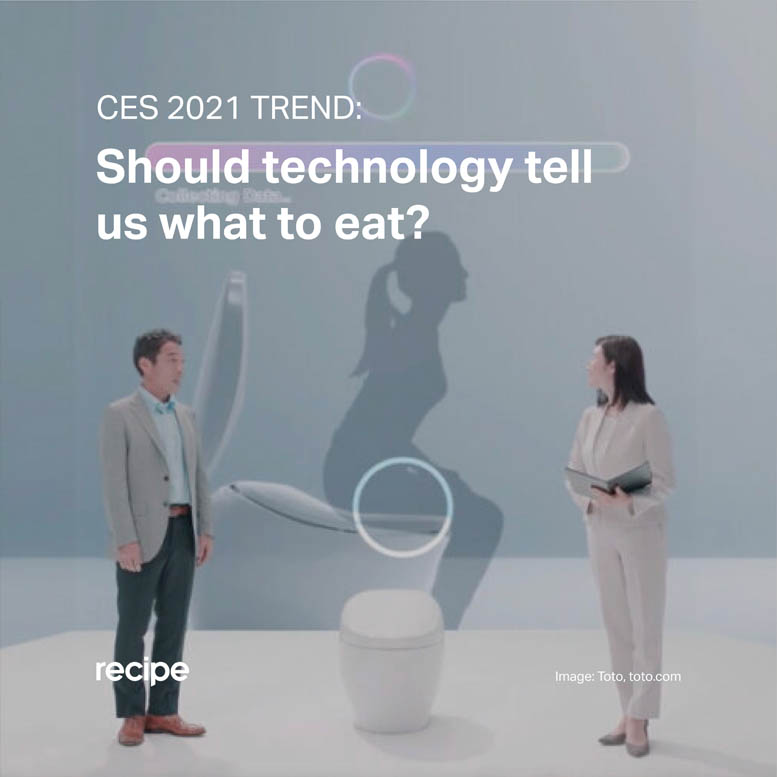
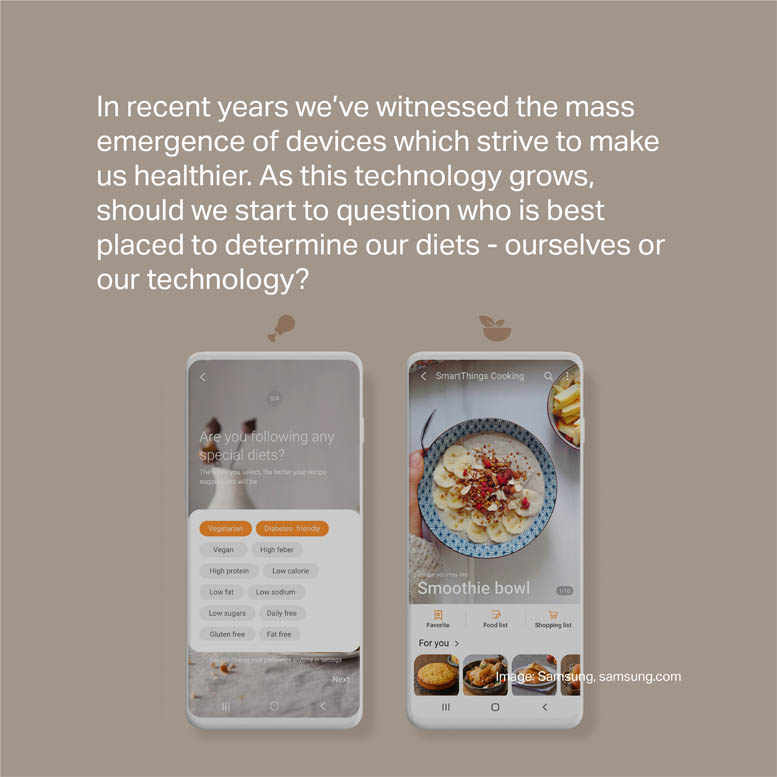
In recent years we’ve witnessed the mass emergence of smart devices and wearables, which strive to make us happier and healthier. They allow us to monitor our vital statistics, track our fitness and gain insights into our sleep. Now, we are seeing technology move to consider digestive analysis and dietary recommendations. ⠀
While some solutions just look to simplify day-to-day planning and decision making, others are much more scientific, specific and directive; analysing individuals’ dietary inputs and outputs.⠀
These devices have the potential to assist people in living healthier lives, encouraging balanced, bespoke diets. As this technology grows, it suggests that what we eat is going to continue to become more calculated. Should we start to question who is best placed to determine our diets - ourselves or our technology?
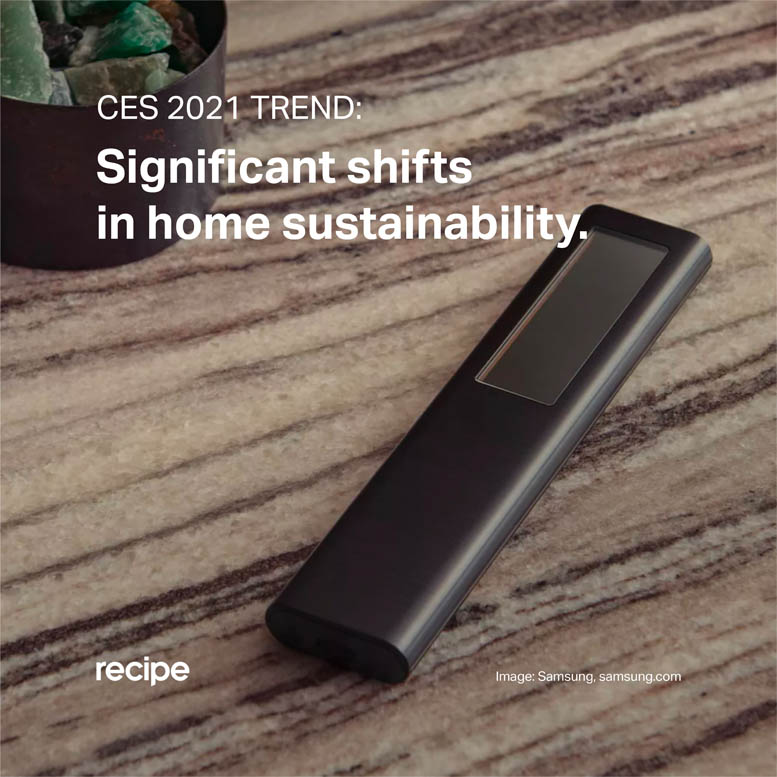
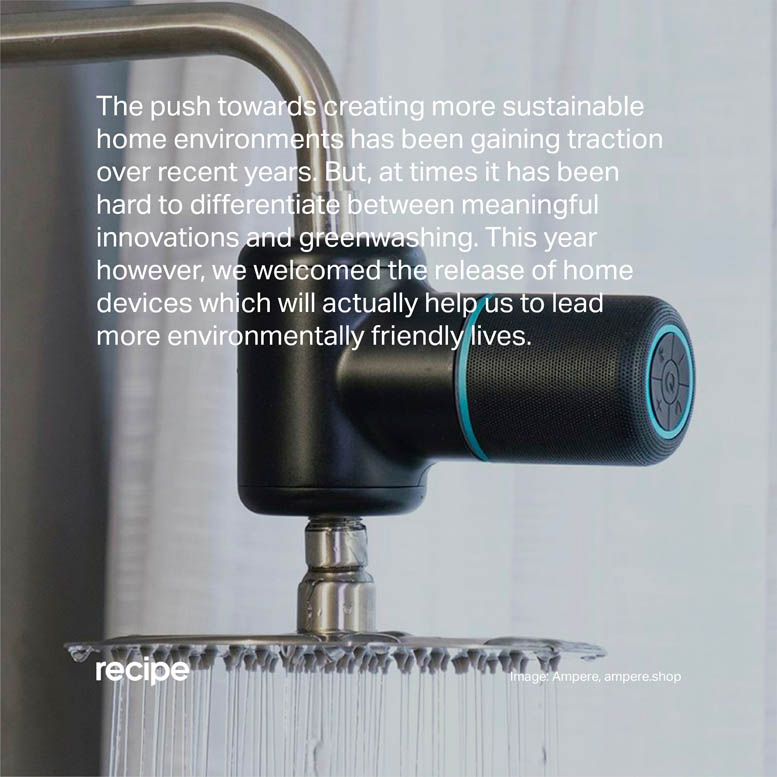
The push towards creating more sustainable home environments has been gaining traction at CES over recent years. But, at times it has been hard to differentiate between meaningful innovations and greenwashing.
This year however, we welcomed the release of home devices which will actually help us to lead more environmentally friendly lives. This includes Samsung’s new solar powered ‘Solar Cell Remote’ supplied with all new TV’s as standard, and Ampere’s hydro-powered ‘Shower Power’ speaker.
Both devices should be celebrated for their attempts to harness more eco-friendly energy, but Samsung’s Solar Remote is particularly exciting, as it indicates that environmentally friendly solutions like this are making their way into the mainstream.
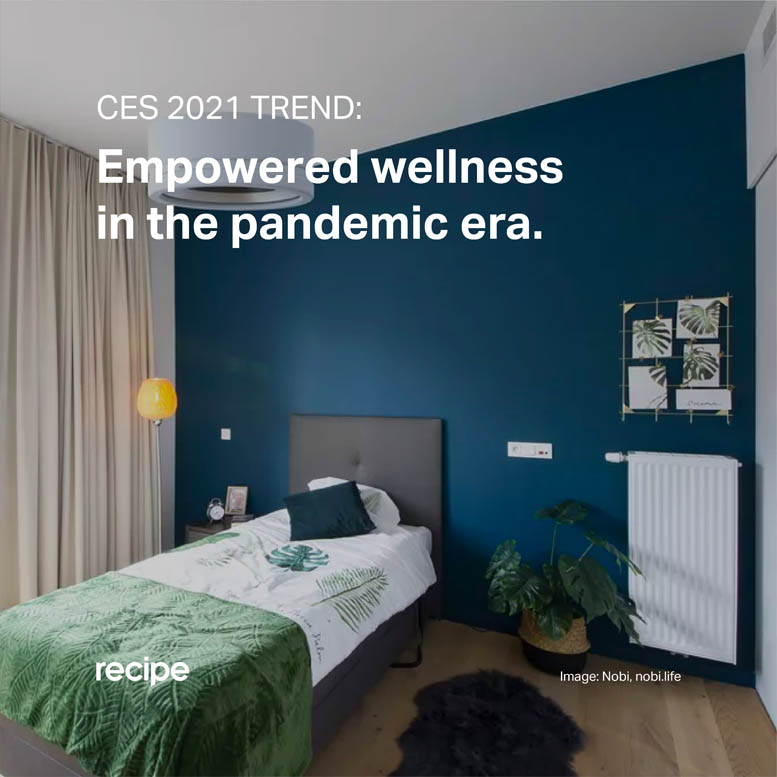
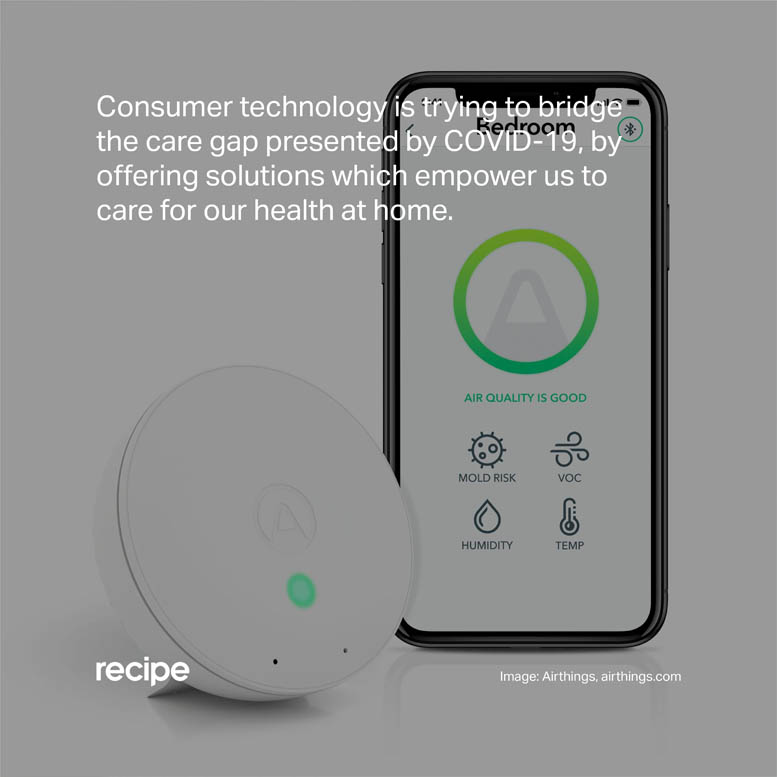
The pandemic has brought about incomprehensible healthcare challenges globally. While healthcare services have been fast-acting and resilient, they have often been stretched too far, leaving shortages.⠀
This year at CES, we saw consumer technology trying to bridge this gap, offering solutions which empower us to care for our health at home.
Airthings, creators of indoor air quality sensors, released their new Virus Risk Indicator feature which ranks the transmission risk of airborne viruses within the environment.
Similarly, the pandemic has prevented us from providing care for elderly family members. By watching for falls, motion sensing lamp Nobi acts as a practical solution, alerting emergency contacts when needed. Nobi hopes to enable elderly citizens to live independently for longer, while also relieving the anxiety of family members who cannot be present to care for them.
Previous month
December 2020
This year, we launched our Meaning Monthly newsletter to help you to unpick and understand trends and behaviours emerging from the homeware and healthcare industries. As the year comes to a close, our team have been reflecting on some of the most notable provocations and insights that have arisen from 2020, and what this means going forward.
Meaning Centred Design Assessment
Meaning Centred Design helps your business understand how people think about, perceive and understand what you stand for and what you have to offer.
MCD Insights can be mapped and translated into new propositions with the potential to make your brand more distinctive, more engaging and ultimately more valuable.
This assessment is an interactive online tool that will help you quickly assess your current situation. It takes less than 5 minutes to compl
